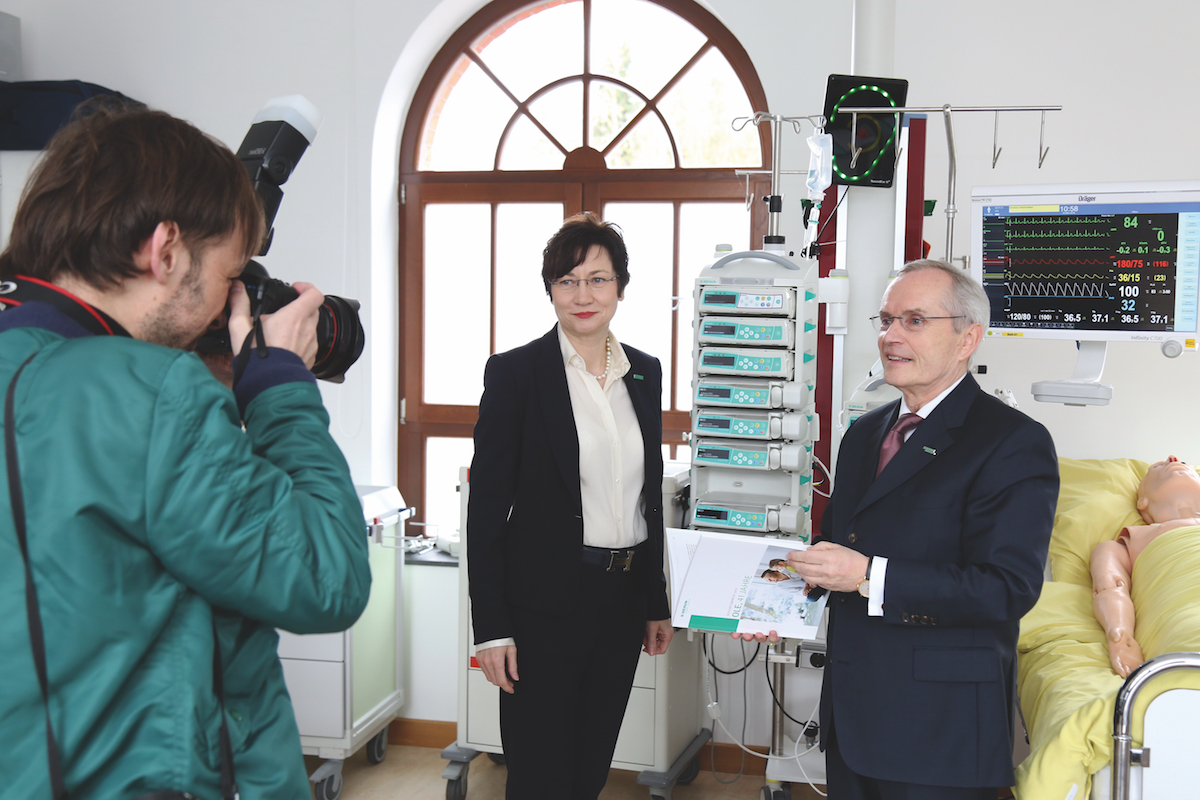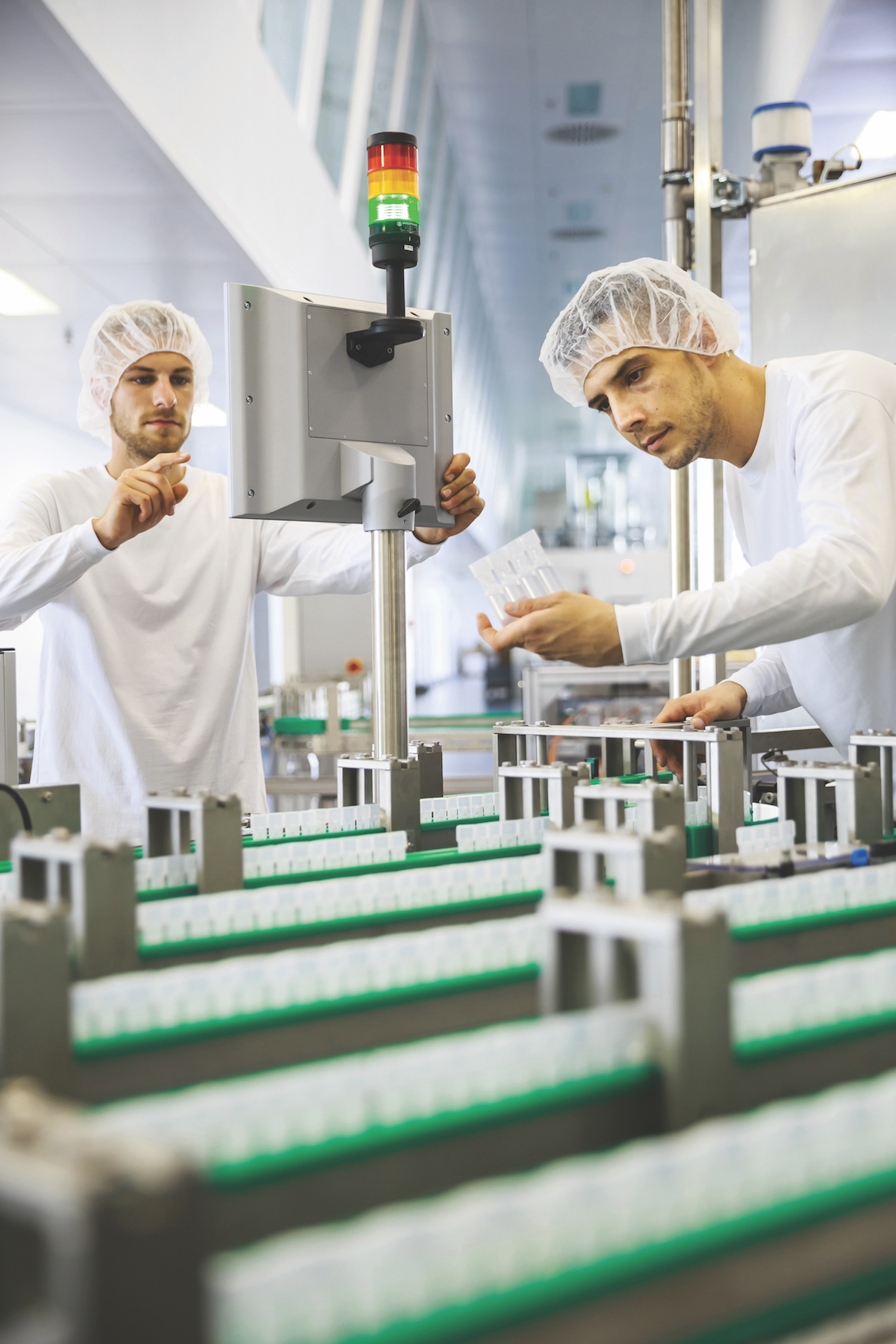Heinz-Walter Große
With a strong history of cutting-edge products and services to support the healthcare and pharmaceutical industries, B. Braun is just what the doctor ordered.
There are few places outside of the operating theatre where precision and quality are so crucial. Every year, thousands of lives depend on the doctor’s hands — but often the reliability of those hands is only as good as the tools they have during procedures, the equipment providing patient vitals in real-time and the new technologies allowing better care, both in and out of the hospital.
In providing a considerable number of these crucial tools, product systems and services to the global health industry, medical device provider and manufacturer B. Braun does not take its dedication to quality lightly. Now the increasing innovation rate and the digitisation of the healthcare sector has begun to challenge B. Braun’s production process and how it collaborates with its suppliers and customers. This opens up for new ways of thinking around product design, development, processes and models of partnership.
A family-owned business dating back to 1839, the current B. Braun Chairman and Chief Human Resources Officer, Professor Heinz-Walter ("call me Walter") Große, is the first person to serve in the Chairman role who isn’t a member of the Braun family. Walter chats with The CEO Magazine, describing the new efforts around product development, customer service and innovation, and why — in such a delicate and technical industry — it’s important to collaborate and share expertise for the best outcome in protecting and improving the health of people all around the world.

The CEO Magazine: How is B. Braun constantly working to share its expertise in the industry?
Walter: This leads to many directions but let me mention the two main ones — the first is the relationships we form outside the business, working with our customers to determine their needs and wants. That collaboration is useful for both parties because it helps us to gain further insight into how we keep our products cutting edge, and build relationships with customers, while serving to show them we are dedicated and listening to their needs.
The other aspect of sharing expertise is the internal aspect; how we work across all the different departments and countries that B. Braun operates in.
Even before digitisation became a buzzword, we have been working closely together. We are no longer isolated, even in our workplaces we have a very open environment. For example, I could mention our open office concept, meaning that I don’t have my own office, rather we work in an open plan arrangement. When I am out and not in the office, someone else can sit at the desk I was using yesterday. That is what sharing expertise means — how we work together, internally and externally. That in turn gives a sense of unity within the company and with our clients.
Collaboration is useful for both parties because it helps us to gain further insight into how to keep our products cutting edge, and builds ties with those customers.

How did you become B. Braun’s first non-relative chairman of the company’s management board?
After attending university in Göttingen, I received a diploma in business and teaching but never stepped into regular school surroundings. Having been with B. Braun since 1978, I started in the finance department in Melsungen and eventually became the assistant to the CFO. After working in Melsungen for 4 years, I moved over to join our US subsidiary and spent 6 years initially in the finance department. Later my field of responsiblity moved to supply chain production planning, logistics, purchasing and everything associated. After 6 years, I moved into the Austrian arm of the business and was on the management board of the Austrian B. Braun company. Here it was not just the Austrian market we worked for, but after all the political changes in Europe at the time, we were also responsible for developing the markets in Hungary, Czech Republic, Slovakia and Romania. Also at that time, the development of the B. Braun service business in dialysis treatments was one of my key responsibilities. In 2005, I succeeded the CFO who retired. In addition to the CFO role, I took over responsibility for HR, Legal Affairs and Labor Relations in 2008, then succeeded Mr Braun as the Chairman of the Board in 2011.
Having been with B. Braun since 1978, did you ever think that by 2011 you would be sitting at the head of the company?
No. I was somewhat interested, looking from the outside to the headquarters in Melsungen, and knowing that the CFO would retire in 2005. Being the CFO of a company like B. Braun seemed very interesting, and I thought I would probably have that responsibility for ten or twelve years and then retire. So it was a surprise when the board member for HR left the company in 2008 and I was asked to take that role in addition to the CFO position. I thought this would be for an interim period of a few months until a new HR board member was appointed, but after accepting the role I was holding both positions at the same time for a few years. That professional experience moved me in a very interesting and new direction. Being the Chairman of the company was never on my agenda, so it certainly came as a surprise.
We work under a zero tolerance policy. We won’t accept that mistakes might happen. None of our products should ever have issues around quality and must be reliable all the time; people’s lives depend on it.
How important is research and development to the business?
Research and development is so important, because the R&D process is what goes into all of our products and services. Our budget for R&D is around €300–350 million annually.
Innovation is deeply rooted in B. Braun’s corporate culture. Therefore, we talk to customers, find out what we can do better, and then develop ideas to improve a combination of products and systems for therapeutic areas in healthcare. We have done this, for example, with a variety of infusion products and with the wide range of our Aesculap products, including surgical instruments, implants, surgical sutures, sterile containers, storage, motor and navigation systems, as well as products for cardiology. So what drives us is making this process more efficient and creating safer products in the process, and digitisation helps.
Looking, for example, at an infusion pump 50 years ago, it was just a physical pump controlling the flow of the infusion solution into the patient. Today it’s a highly intelligent machine that controls many other aspects of the procedure.
How important is B. Braun’s relationship with its suppliers?
We produce most of our products in our own factories. In total, the B. Braun product range comprises 5,000 different products, 95% of which are manufactured by the company in factories around the world. So for the most part we control quite a wide area of the value-creation process.
On the other hand, of course, we also purchase raw materials and components, and some finished products from our suppliers. As we are in the healthcare market we need reliable relationships. If we have a problem — such as a supplier changing a formula or something in their production process — that can have a negative influence on our finished product.
Our products are used in hospitals and operating theatres and thus we have a zero tolerance policy. We won’t accept that mistakes might happen. None of our products should ever have issues around quality and must be reliable all the time; people’s lives depend on it. We trust our suppliers, and I am happy to say they usually fulfill their promises.
What are the keys to B. Braun’s success and how will this be maintained?
Our success is really based on our constant drive for improvement and innovation. By always looking for new and better ways of doing things, we improve our products and therapies. Through this, we can improve the process in hospitals, contribute to getting people healthy again and help doctors perform more precise or more effective therapies. That is our responsibility, and our customers and partners can always rely on the fact that they consistently have the best, state-of-the-art products available. If we have the possibility of making those products even safer, or smarter, or if there are any other means of improving the healing process of patients, then we have an obligation to work in that direction.
Our product line has everything for safe and exact infusion therapy, with an expansive portfolio of infusion and injection solutions, drug admixture, drug delivery and automated infusion systems, plus disinfection and hygiene products. We also offer supplementary services and consulting as part of our close partnership with our customers. Since we manufacture many of our own products, we can customise a product according to detailed specifications, and then we support customers further with regulatory, analytical and logistical services.
In addition to working with doctors and patients, we have regular interaction with the technical departments of different universities. Our ongoing close collaboration with researchers, clinicians and patients helps us to optimise medical procedures and improve the quality of life of those we serve. If you see B. Braun as a success story — that is definitely a team success, no question. We have a great and dedicated mix of different people working hard every day. It is always the strength of the team; nobody can do everything on their own.
What is B. Braun’s key focus in the next 12-to-18 months?
We want to play a leading role in innovation and efficiency, and we maintain our position in the market by staying close to the customers and helping them to improve their own processes. If we compare the old and new economy, there are so many changes coming from these new start-up efforts. We always have to stay very close to these changes and
the market; we have to look at all their possibilities where you have processes that could disrupt our products. Take e-healthcare and telehealth for example, I think here we will see some major changes over the next couple of years.
The changes will only come faster and faster, as the rate of innovation grows. Therefore, we must always be ready to be on top of the future and face the changes that come along.
In my 6th year in the role as Chairman, I am very proud of how we have kept this momentum within the company, and the attitudes around quality and constant improvement that we have created. We have to focus on how can we do things better tomorrow, always exceeding yesterday.